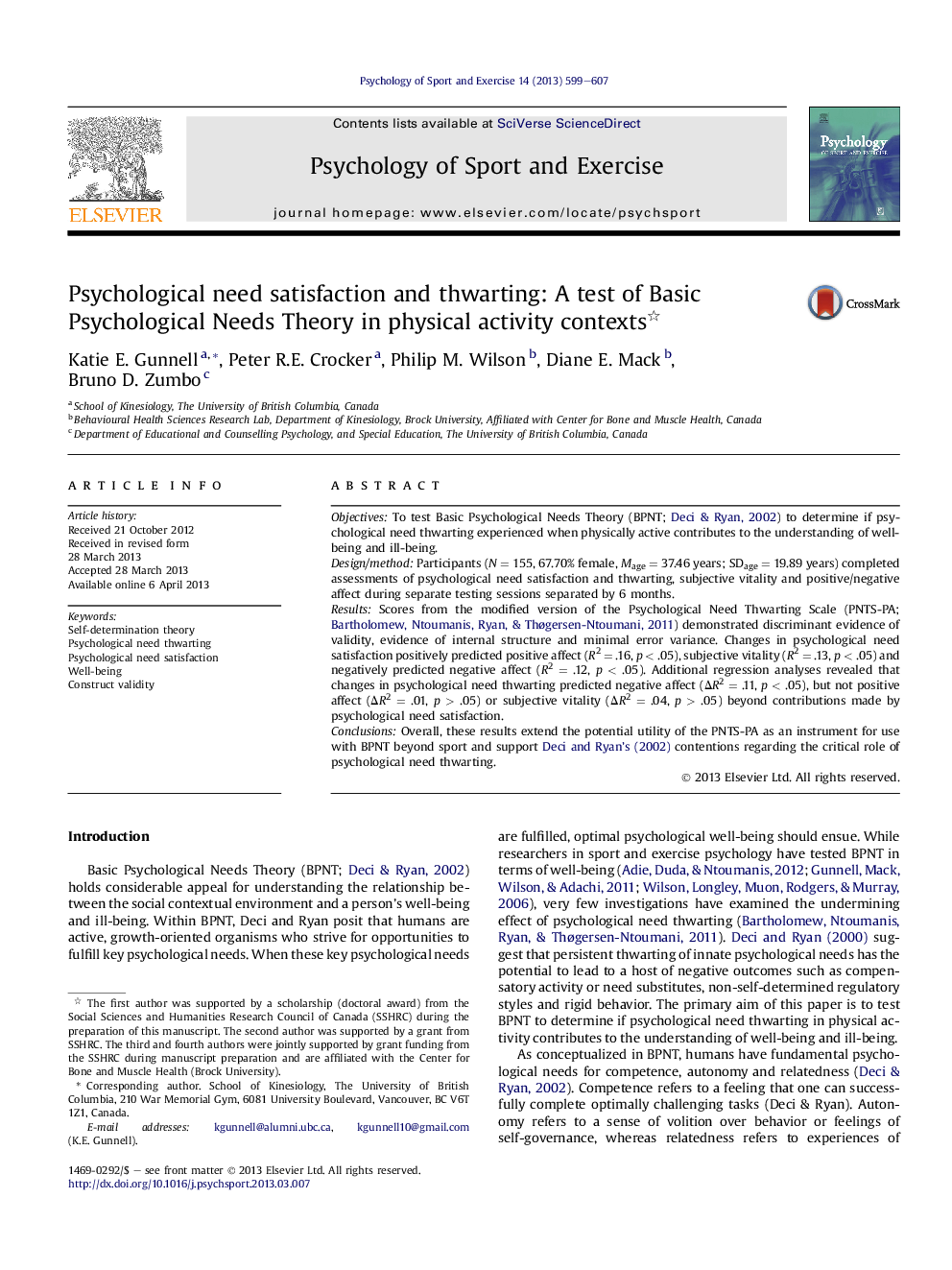| Article ID | Journal | Published Year | Pages | File Type |
|---|---|---|---|---|
| 894499 | Psychology of Sport and Exercise | 2013 | 9 Pages |
•We examined change scores over 6 months.•Psychological need thwarting predicts negative affect above psychological need satisfaction.•Psychological need thwarting cannot be equated with lack of need satisfaction.•Support for score validity and reliability of the modified PNTS was found.
ObjectivesTo test Basic Psychological Needs Theory (BPNT; Deci & Ryan, 2002) to determine if psychological need thwarting experienced when physically active contributes to the understanding of well-being and ill-being.Design/methodParticipants (N = 155, 67.70% female, Mage = 37.46 years; SDage = 19.89 years) completed assessments of psychological need satisfaction and thwarting, subjective vitality and positive/negative affect during separate testing sessions separated by 6 months.ResultsScores from the modified version of the Psychological Need Thwarting Scale (PNTS-PA; Bartholomew, Ntoumanis, Ryan, & Thøgersen-Ntoumani, 2011) demonstrated discriminant evidence of validity, evidence of internal structure and minimal error variance. Changes in psychological need satisfaction positively predicted positive affect (R2 = .16, p < .05), subjective vitality (R2 = .13, p < .05) and negatively predicted negative affect (R2 = .12, p < .05). Additional regression analyses revealed that changes in psychological need thwarting predicted negative affect (ΔR2 = .11, p < .05), but not positive affect (ΔR2 = .01, p > .05) or subjective vitality (ΔR2 = .04, p > .05) beyond contributions made by psychological need satisfaction.ConclusionsOverall, these results extend the potential utility of the PNTS-PA as an instrument for use with BPNT beyond sport and support Deci and Ryan's (2002) contentions regarding the critical role of psychological need thwarting.
